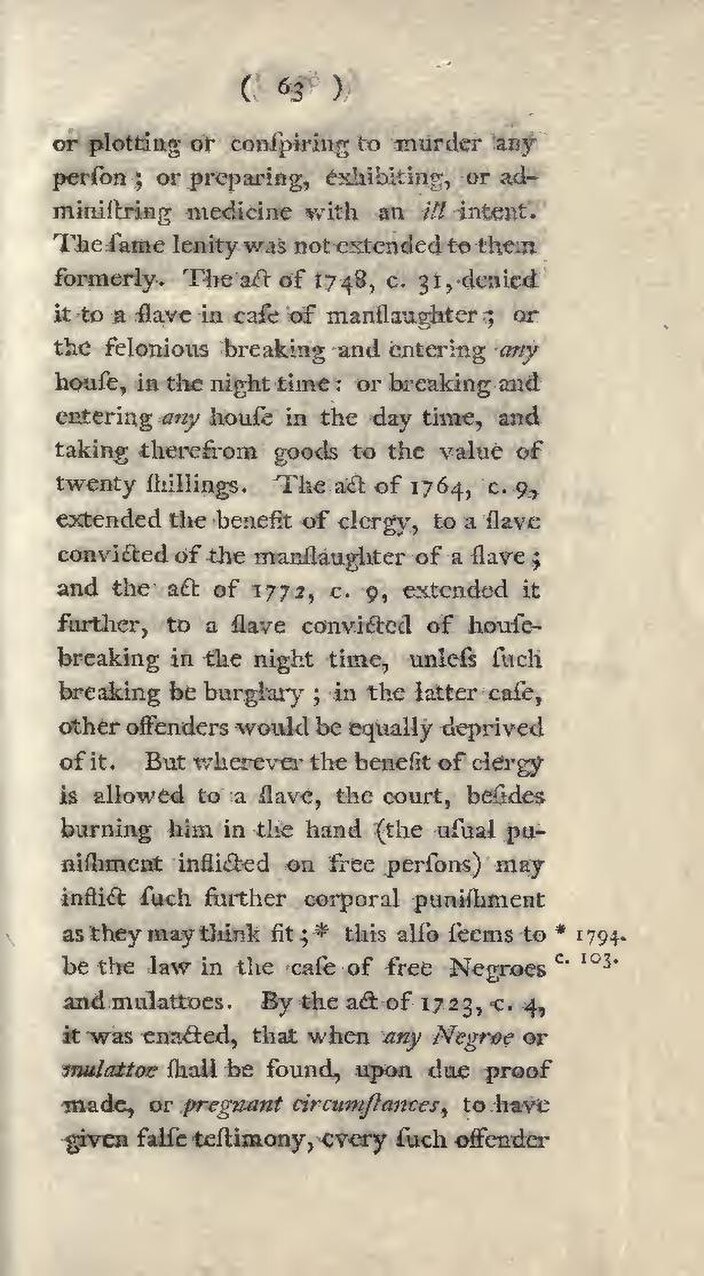( 63 )
or plotting or conspiring to murder any person; or preparing, exhibiting, or administring medicine with an ill intent. The same lenity was not extended to them formerly. The act of 1748, c. 31, denied it to a slave in case of manslaughter; or the felonious breaking and entering any house, in the night time: or breaking and entering any house in the day time, and taking therefrom goods to the value of twenty shillings. The act of 1764, c. 9, extended the benefit of clergy, to a slave convicted of the manslaughter of a slave; and the act of 1772, c. 9, extended it farther, to a slave convicted of house-breaking in the night time, unless such breaking be burglary; in the latter case, other offenders would be equally deprived of it. But wherever the benefit of clergy is allowed to a slave, the court, besides burning him in the hand (the usual punishment inflicted on free persons) may inflict such further corporal punishment as they may think fit;** 1794. c. 103. this also seems to be the law in the case of free Negroes and mulattoes. By the act of 1723, c. 4, it was enacted, that when any Negroe or mulattoe shall be found, upon due proof made, or pregnant circumstances, to have given false testimony, every such offender
